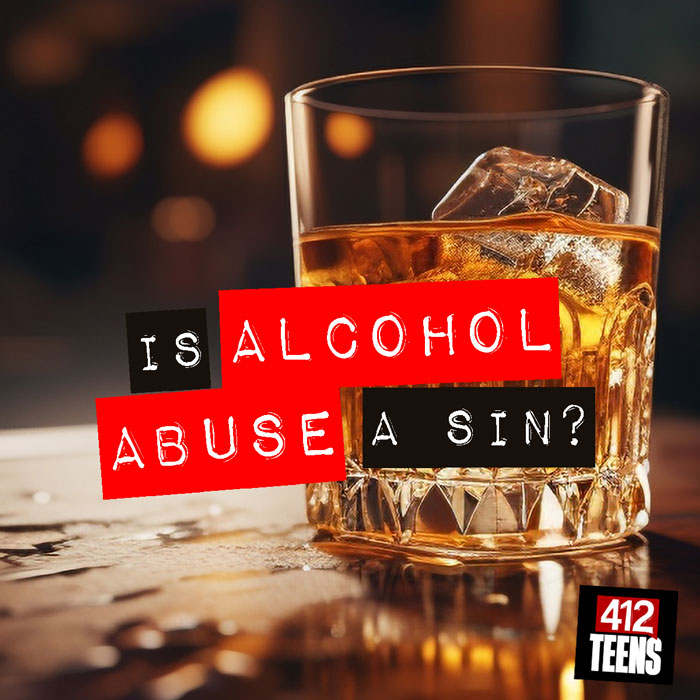Is alcohol abuse a sin?

"Wine produces mockers; alcohol leads to brawls. Those led astray by drink cannot be wise." —Proverbs 20:1 (NLT)
Alcoholism is physical and mental dependence on alcohol regardless of the level of damage it causes. Roughly 400 million people in the world live with physical, mental, relational, social, and legal issues because of their alcohol abuse. Until these individuals seek help, alcohol will continue to destroy their lives (Luke 21:34; Galatians 5:19-21).
Alcoholism affects both men and women, regardless of age, race, religious affiliation, or social status. Statistically, men are more likely to become addicted to alcohol, and women experience more health problems from drinking. Children of alcoholics and those who are under 30 are more vulnerable to alcoholism in their own lives. Genetics, environment, plus emotional and mental health problems are also contributing factors.
The Definition of Alcohol Abuse
We want to be clear first that drinking underage is a sin because it is illegal, and we are called to obey the law (Romans 13:1; Hebrews 13:17). If you are of legal drinking age and choose to drink, then it's important to remain vigilant about how alcohol affects you, your behavior, your relationships, and your quality of life. Having a drink now and then is not inherently sinful but drinking enough to lose self-control or even pass out or blackout (memory loss) is both unhealthy and dangerous.
So how is alcohol abuse defined? According to the DSM-5, symptoms of Alcohol Use Disorder include:
- Failing to meet job, school, or family responsibilities
- Drinking in hazardous situations like driving, working, swimming, or operating dangerous machinery
- Getting arrested for drinking under the influence or domestic violence
- Becoming sick or having mental problems after drinking or after becoming sober—especially if you find you have issues if you don't drink
- Needing more alcohol to feel the effects
- Drinking more than you meant to, drinking for a long time, or wanting to drink badly
- Quitting activities you enjoy or avoiding places or people if they interfere with drinking
- Trying to quit but finding yourself unable to
Additional signs of problem drinking:
- Drinking early in the day
- Drinking just to feel "normal"
- A susceptibility to injuries and accidents
- "Blacking out" or experiencing memory loss
- Refusing to stop despite continued alcohol-related problems
- Anger and violence and/or uncharacteristic behavior after excessive drinking
- "Chugging" (binge drinking) to speed up the effects of alcohol
According to a 2023 study by the National Survey on Drug Use and Health, 3.3 million people in the United States, ages 12 to 20, reported binge drinking in the past month1. The National Institute on Alcohol Abuse and Alcoholism (NIAAA) defines "binge drinking" as a pattern of drinking alcohol that brings blood alcohol concentration (BAC) to 0.08% or higher2.
Typically, women who rapidly consume four or more drinks are considered binge drinkers; men are considered to have binged after consuming five drinks. Although binge drinkers are not necessarily alcoholics, binge drinking is a leading cause of preventable death in America.
Ancient Wisdom on Alcohol
Long ago, the Bible warned about alcohol abuse:
For in the end it bites like a poisonous snake;
it stings like a viper.
You will see hallucinations,
and you will say crazy things.
You will stagger like a sailor tossed at sea,
clinging to a swaying mast.
And you will say, "They hit me, but I didn't feel it.
I didn't even know it when they beat me up.
When will I wake up
so I can look for another drink?"
—Proverbs 23:32-35 (NLT)
While alcohol abuse can be devastating, there is hope. Being an alcoholic does not cause God to reject a believer or revoke their salvation—nothing can do that (Ephesians 2:8-9). Jesus offers both comfort and healing. Call to Him. He will hear you and guide you (Psalm 23). Ask God to give you the courage and strength to take that first step (1 Corinthians 10:13). Reach out to loved ones, your pastor, or even pursue therapy through counseling or a support group like Alcoholic Anonymous.
If you realize that you show symptoms of alcohol abuse, we recommend Celebrate Recovery.
RESOURCES: 1. National Institute on Alcohol Abuse and Alcoholism. (n.d.). Underage Drinking in the United States (ages 12 to 20). National Institute on Alcohol Abuse and Alcoholism: https://www.niaaa.nih.gov/alcohols-effects-health/alcohol-topics/alcohol-facts-and-statistics/underage-drinking-united-states-ages-12-20 [Accessed: June 19, 2025]. 2. National Institute on Alcohol Abuse and Alcoholism. (Updated June 2024). Glossary. In Alcohol facts and statistics. U.S. Department of Health and Human Services. National Institute on Alcohol Abuse and Alcoholism: https://www.niaaa.nih.gov/alcohols-effects-health/alcohol-topics-z/alcohol-facts-and-statistics/glossary [Accessed: June 19, 2025].
ALSO SEE:
- What does the Bible say about drinking?
- How do people become alcoholics?
- What is a functioning alcoholic?
- Should Christians go to parties?
- Is caffeine addiction a sin?
- Why are personal convictions important?
- Why can't Christians have fun?
- How can I overcome peer pressure?
- How can I avoid the appearance of evil?
- What does the Bible say about vaping?
- Should a Christian smoke?
- Celebrate Recovery


TL;DR
If you're under legal drinking age, drinking alcohol is a sin because it's illegal for you (Romans 13:1; Hebrews 13:17). If you ARE of legal drinking age and choose to drink, and you find that your drinking habits damage your relationships and health and/or make it difficult to keep up with real life responsibilities (like work, school, chores, etc.), and you can't or don't want to quit, then you have an alcohol abuse problem. When you're ready, you can get help. Ask God to give you the courage and strength to take that first step (1 Corinthians 10:13; Psalm 23). Reach out to loved ones, your pastor, or even pursue therapy through counseling or a support group like Alcoholic Anonymous.
